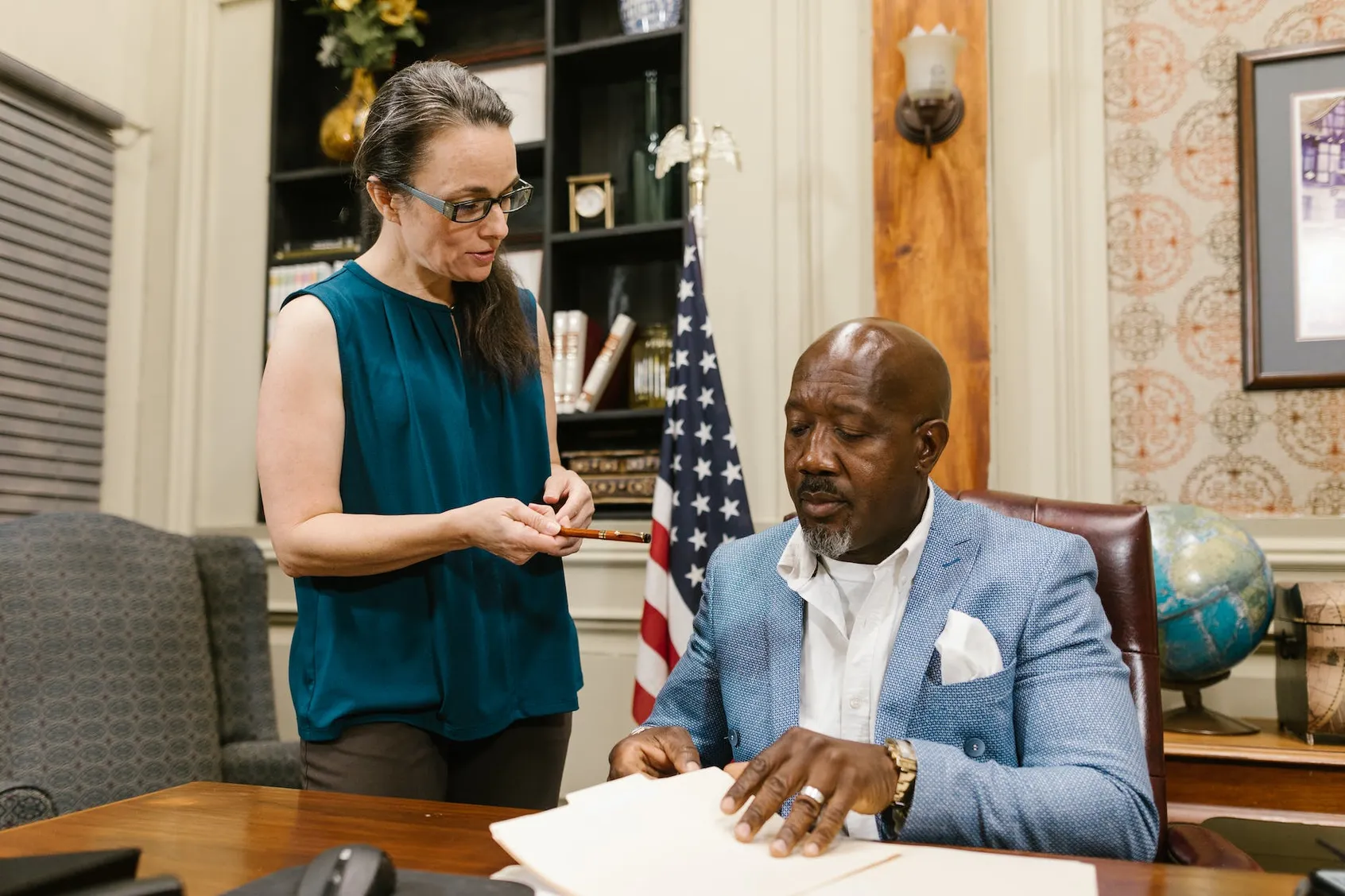Divorce and remarriage can bring about difficult questions and decisions for couples. While divorce and remarriage are often seen as a way to end a marriage, they can also allow couples to start anew.
Many end up wondering, can you divorce and remarry the same person? This article will explore the legality and practicality of remarrying the same person and the potential challenges that may arise from that decision.
Can You Divorce And Remarry The Same Person?
Yes, it is possible to divorce and remarry the same person. This is known as a “reconciliation marriage” or a “second-time-around marriage.” However, it is important to note that the reasons for the divorce must be resolved, and both parties must be willing to work on the issues that led to the divorce in the first place. The legal requirements for divorce and remarriage must be met, such as waiting periods and obtaining a new marriage license.
Divorce and remarriage is a difficult decision and can be a complex process. But divorcing and remarrying the same person can be even more difficult. People who want to remarry the same person after a divorce must consider the reasons for the divorce and whether the same issues still exist today.
Sometimes, couples decide to remarry because they have reconciled their differences and are ready to move forward with their relationship. In other cases, a couple may decide to remarry as a way of starting over and rebuilding the trust that was lost.
In either case, it is important to remember that remarrying the same person can be a difficult process. There are many legal and emotional factors to consider before taking such a big step. It is important to remember that remarriage does not always mean that the relationship will be better or that the issues from the past have been resolved. Both parties must be willing to work together to create a new relationship based on trust, respect, and honesty.
Ultimately, deciding to remarry the same person after a divorce is personal and should not be taken lightly. It is a decision that should be made with care and consideration, and couples should ensure they have considered all potential consequences. Remarrying the same person can be a great way to start a new chapter in a relationship and create a new bond of love and trust, but it is important to remember that it is not always an easy decision.

Legal Implications Of Marrying The Same Person Twice
Divorce and remarriage can be a complicated legal process, even more so when it involves marrying the same person twice. This can be a complex issue, and the legal implications vary depending on the laws of the state and country where the marriage takes place.
In some states, a person can legally marry the same person more than once. Additionally, the legality of a second marriage with the same person may have implications for any prior legal agreement or financial settlement made in the initial marriage.
Additionally, the laws of the state or country where the marriage will take place will dictate whether the marriage is valid. In some cases, a person may be able to remarry the same person in a different country or state, and the marriage will be legally recognized.
In addition to the legal implications of marrying the same person twice, it is also important to consider the emotional implications. Remarrying the same person can be a difficult and emotional process, and it is important to consider whether the relationship is healthy enough to sustain another marriage.
Moreover, it is important to consider whether the relationship is healthy enough for both parties to be comfortable remarrying the same person. If any doubts or issues could affect the marriage, it is important to address them before remarrying the same person.
The Effects Of Divorce And Remarriage On Children
The effects of divorce and remarriage on children can vary depending on the circumstances and the child’s age. However, research suggests that children of divorced and remarried families may experience some challenges, including:
- Emotional and psychological issues: Children may experience depression, anxiety, and behavioral problems due to the stress, conflict, and disruption that divorce and remarriage can bring.
- Difficulty forming attachments: Children may struggle to form healthy attachments with new parental figures, particularly if they feel abandoned by their biological parents.
- Strained relationships: Divorce and remarriage can strain relationships between parents, children, and step-children, leading to resentment and conflict.
- Economic struggles: Divorce and remarriage can result in a loss of financial stability for children, which can further exacerbate stress and anxiety.
It’s important to note that not all children experience negative effects from divorce and remarriage. Some children can adapt well and thrive in blended families. Ultimately, the key factors determining how well children adjust include parental attitudes towards divorce and remarriage, the quality of the parent-child relationship, and appropriate adult support.

Financial Implications Of Divorce And Remarriage
Divorce and remarriage can have significant financial implications, both positive and negative. Here are a few ways that these life events can impact your finances:
- Division of assets and debts during divorce can leave both parties with a smaller financial pie. Depending on the state and circumstances, the court may require dividing assets such as property, retirement funds, and investments. Additionally, debts may be divided as well. This can result in a decrease in net worth for both parties.
- Child support and alimony payments can impact cash flow. If one spouse is required to pay child support or alimony, this will impact their monthly income. If you receive child support or alimony, it will increase your monthly income.
- Remarriage can impact taxes and benefits. For tax purposes, remarriage can result in different filing and deduction options. Additionally, if either party receives government benefits such as Social Security, remarriage can impact their eligibility and payout amounts.
- Estate planning should be revisited after divorce and remarriage. It is important to update your will, power of attorney, and other important documents to reflect your current situation and wishes.
Divorce and remarriage can significantly impact your finances, so it is important to consider the potential implications and plan accordingly carefully.
Cultural And Social Stigmas Associated With Divorce And Remarriage
Many cultural and social stigmas associated with divorce and remarriage vary depending on each society’s cultural norms and beliefs. Here are a few common stigmas:
- In many societies, divorce is seen as a failure, and those who have gone through it may be stigmatized as having a defective character.
- Divorced individuals may face criticism and judgment from their community, including family members, friends, and religious leaders.
- In some cultures, remarriage is considered taboo, especially for women. Widows, divorcees, and single mothers may be seen as damaged goods and find it difficult to remarry within their community.
- Children of divorced parents may also face stigma, with some believing that they are more likely to have behavioral or emotional problems or grow up to become divorced.
It’s important to note that these stigmas can significantly impact people’s lives and may prevent them from fully embracing their new reality. By challenging cultural and social norms, we can help create a more accepting and supportive environment for those who have gone through divorce or remarriage.

The Psychological Impact Of Divorce And Remarriage
Divorce and remarriage can have a significant psychological impact on individuals and families. Here are a few ways that these events can affect people:
- Stress and anxiety: Divorce can be incredibly stressful and anxiety-inducing. Navigating the legal process, financial implications, and custody arrangements can be challenging. Similarly, remarrying can also be a significant source of stress, particularly if blended families are involved.
- Loss: Divorce can bring feelings of loss and grief, particularly if the relationship is long-term. These emotions can also extend to children and extended family members.
- Adjustment: Both divorce and remarriage require significant adjustments in lifestyle and routines. Individuals must adapt to new living arrangements, schedules, and expectations.
- Self-esteem: Divorce can negatively impact an individual’s self-esteem and self-worth, as they may feel like they have failed in the relationship. Similarly, navigating the world of dating and second marriages can be challenging, leading to feelings of rejection or inadequacy.
- Resilience: Despite the challenges, individuals who have gone through divorce and remarriage can also develop resilience and grow from the experience. Through counseling and support from friends and family, individuals can learn valuable coping mechanisms and develop a new sense of self.
Communication Skills Needed For A Successful Remarriage
Effective communication is essential for any successful remarriage. Here are some key communication skills that can help:
- Active listening: Listening fully and attentively to your partner during a conversation is important. This means paying attention to their words, tone, and nonverbal cues.
- Empathy: Put yourself in your partner’s shoes and try to understand their perspective when communicating. This can help build trust and deepen emotional connection.
- Assertion: Be honest and clear about your needs and boundaries. Don’t be afraid to share your opinions and feelings respectfully.
- Avoidance of negative communication patterns: Avoid yelling, interrupting, blaming, or using hurtful language. Instead, focus on expressing yourself respectfully and productively.
- Willingness to compromise: Be open to finding a middle ground that works for both partners. Be willing to negotiate and make concessions where needed.
- Respectful conflict resolution: Conflicts are natural in any relationship, but it is crucial to resolve them respectfully and constructively. Use effective communication skills to find solutions that work for both partners.
Remember, communication is a two-way street, requiring effort from both partners. Using these communication skills, you can help build a strong foundation for a successful remarriage.
Rebuilding Trust After Divorce And Remarriage
Divorce and remarriage is a difficult process, and many couples find themselves in a position where they are considering remarrying the same person after a divorce. While this can be daunting, rebuilding trust and having a successful remarriage is possible.
- To be honest about the reasons for the initial divorce. Both parties need to take responsibility for the issues that led to the breakdown of their marriage and be willing to work on them. Additionally, couples may need counseling or other support to help them resolve their issues and rebuild trust.
- To set clear expectations for their relationship. It is important to discuss boundaries and expectations and ensure that both parties are on the same page. This will help ensure that the issues that caused the divorce are not repeated.
- To explore the possibility of changing their behavior to rebuild trust. This could involve changing their communication styles, learning to manage conflict better, or finding ways to show their love and appreciation for one another.
- To take the time to build a strong foundation for their relationship. This could involve spending quality time together, reconnecting emotionally, or doing activities both partners enjoy. Couples should also ensure that they take care of their emotional needs and not rely solely on their partner to provide emotional support.
It is possible to rebuild trust and have a successful remarriage after a divorce. However, it requires commitment and effort from both partners. If couples can be honest about their issues, set clear expectations, and take the time to build a strong foundation for their relationship, then they can be successful in their remarriage.
Dealing With Family And Friends After Divorce And Remarriage
Going through a divorce and remarriage can be a difficult time for everyone involved, including family and friends. Here are a few tips for dealing with these relationships:
- Communicate openly and honestly with your family and friends. Let them know how you’re feeling, and be prepared to listen to their concerns. This can help prevent misunderstandings and hurt feelings.
- Set boundaries if necessary. Limiting your interactions with them may be necessary if certain family members or friends are particularly difficult or causing stress.
- Consider involving a mediator or therapist if conflicts arise. A neutral third party can facilitate discussions and work towards a resolution that everyone can agree on.
- Focus on your happiness and well-being. Remember that, ultimately, your own needs and feelings are important too. Surround yourself with people who support and uplift you, and don’t be afraid to let go of toxic relationships.
Conclusion
In conclusion, it is possible to marry the same person twice, depending on whether or not it is allowed in the jurisdiction where you are attempting to remarry. If remarriage is allowed, it is possible to marry the same person twice.
However, if the jurisdiction permits such remarriage, it is possible to marry the same person twice. Ultimately, it will be up to the individuals involved to decide whether or not they wish to pursue a second marriage with their former spouse.
Frequently Asked Questions:
What must I do to get a divorce and remarry the same person?
To get a divorce and remarry the same person, you must obtain a legal divorce and then re-marry that person in a legally binding ceremony. The process of getting a divorce will vary depending on the laws of your state. You may need to consult a lawyer to ensure you follow all the necessary steps.
How can I be sure that remarrying my former spouse is right?
The decision to remarry your former spouse should be taken seriously and should involve careful consideration. Consider talking to a therapist or counselor to discuss the issues that led to the divorce and to determine whether remarrying is the right decision for both of you. Additionally, reflect on the relationship, your changing feelings, and what you both want out of the marriage. Open and honest communication is key to ensuring that you both make an informed decision.
What challenges come with remarrying the same person after a divorce?
Rebuilding trust and committing to making the relationship work are the main challenges when remarrying the same person after a divorce. Hurt feelings, resentment, and anger may make it difficult to build a strong foundation. Both parties need to be willing to compromise and work together to resolve any conflicts that may arise.
What steps do I need to take to prepare for a successful remarriage?
Preparing for a successful remarriage involves healing from the previous relationship, reflecting on past behaviors, communicating openly with the new partner, and seeking pre-marital counseling. Following these steps can increase the chances of a successful remarriage.
